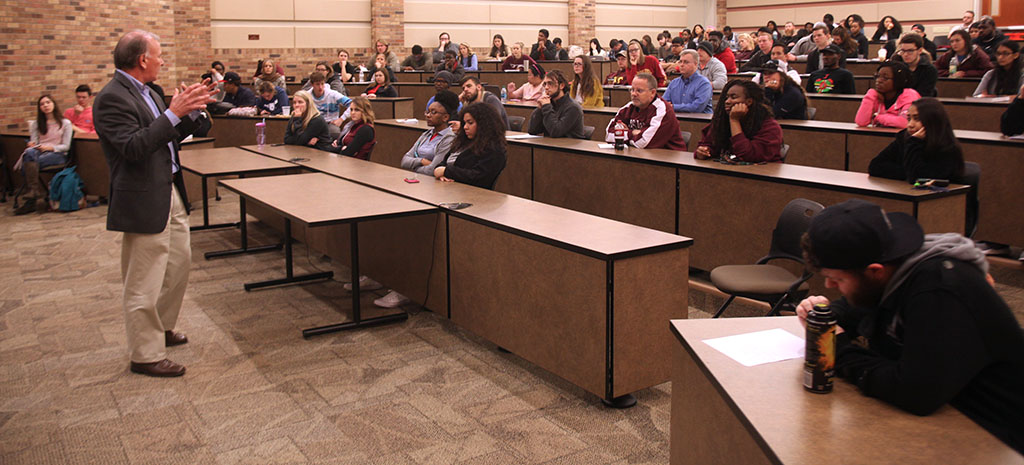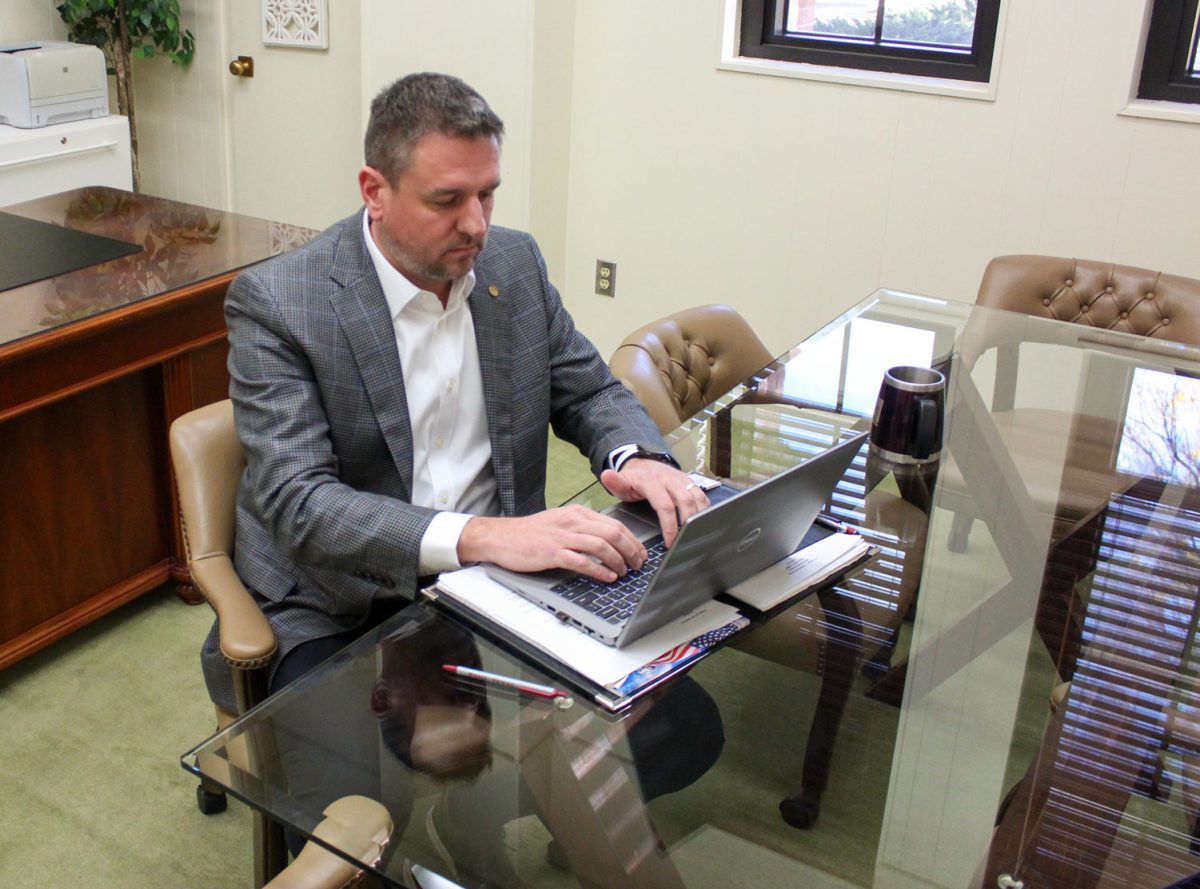
The lights dimmed and an entire room fell silent, pens poised as the speakers moved to the front of the room. But the lecture had nothing to do with a textbook — instead, the hour-long talk provided two personal experiences on a transitioning economy.
The 35th Annual Streich Family Lecture featured Nicaraguan Pablo Garcia-Fuentes, assistant professor of economics, and Albanian Agim Kukeli, director of business and government research, who talked on the economic transition from socialism to capitalism in their native countries.
Garcia-Fuentes took the floor first, and spoke of his country’s transition from a dictatorship to a democratic system. Due to changes in the markets of bananas, coffee and sugar, Garcia-Fuentes said Nicaragua was ninth, following Argentina and Costa Rica.
Though there has been improvement, Garcia-Fuentes said there are still problems.
“The economy grew 4.7 percent in 2014, but the economy will suffer a lot if there is a hurricane,” he said.
Kukeli then took the floor, speaking of his country’s economic transition at the Feb. 16 event in the Dillard College of Business Administration.
“There’s discomfort in moving from one regime to another,” Kukeli said. “In a communist system, everything is owned by the government. Really, your life is run by the government. There’s no free speech, no private enterprise, rationing. Everyone had to work.”
As the system changed, however, so did everything about it. Soon there was small and large scale privatization.
Kukeli ended his speech by saying communism is “the most painful route from socialism to capitalism.”
“You can believe what you want,” he said. “I believe it’s true.”
James Owen, director of the Center for Economic Education, asked what benefits were given up during the transition of socialism to capitalism.
“It can be positive for other people, you can argue there is a positive correlation with economic change,” Fuentes said. “But without communism, people can get access to things that weren’t readily available.”
Kukeli’s response was not as positive.
“It’s like comparing apples to orange. Like I said, everything is owned by the government,” he said. “You might get free schooling and health care, but it’s bad. It’s the bare minimum.”
As questioning opened up to others, students like Landin Meyer, organismal biology freshman, were able to ask questions.
“I liked that we could talk with them about the economic transitions, but I didn’t really understand a lot of it,” Meyer said. “I thought I was in my classroom. I was there because I thought it was mandatory.”
He said he had not seen anything on the event posted around campus.
“I didn’t know it was posted anywhere. A lot of my class didn’t know why we were there,” he said.
Because it wasn’t something that interested him, Meyer said he wouldn’t attend another Streich Lecture.
“I won’t attend unless I’m required to,” Meyer said.
Psychology junior Brittany Cusson, however, said that she enjoyed the discussion.
“I enjoyed hearing personal experience applied to aspects of business. This is my first business class, everything I’ve learned has been really generalized, so it was interesting to hear personal stories and learn about the economies of other countries and how they have changed,” she said.
She said she liked the discussion because it was different than her mandatory class.
“I liked the lectures because it took my experience of business from a textbook definition to a personal example,” she said.
Both Kukeli and Garcia-Fuentes said it was difficult to lecture to a broad community, as not all attendees were business majors.
“It’s a struggle to speak to such a broad audience,” Kukeli said. “There was a large audience, so I tried not to use business jargon. And it was good that questions could be asked, because that helped the crowd to understand the topic even better.”
Garcia-Fuentes agreed, saying questions help any discussion.
“Every time somebody asked a question, it helped someone else understand. By asking questions, it’s also a way to help the speaker explain the topic better,” he said. “Questions make the discussion more interesting.”
Though the speakers were able to convey their topic, they did not have long to prepare.
“I was told two weeks ago about what topic to present on,” Kukeli said. “I’ve presented the topic on a minor version, but not at this forum before.”
However, Garcia-Fuentes had to come up with new material.
“I only had a few weeks to come up with the material. In reality, I had less than that because I had two conferences. This was my first time presenting this information,” he said. “I only wish I could have had more time.”












